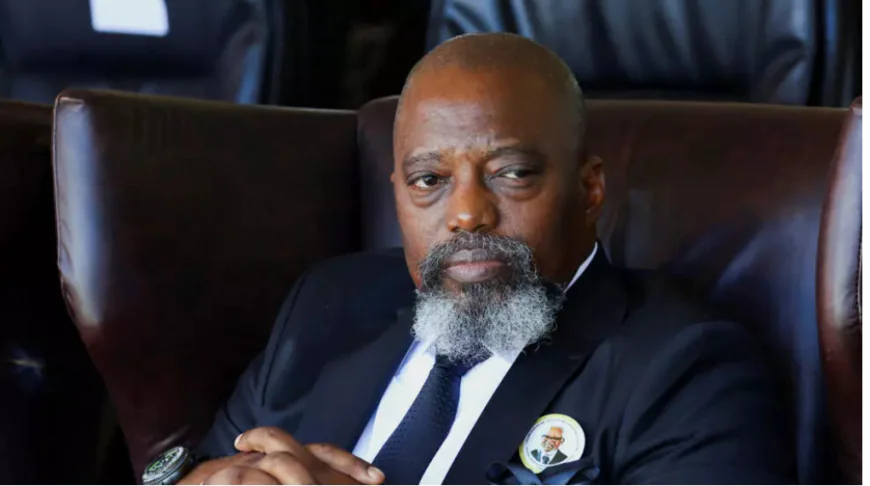DR Congo Senate Lifts Joseph Kabila's Immunity Amid Treason and War Crimes Allegations
The Senate of the Democratic Republic of Congo has lifted former president Joseph Kabila’s immunity, paving the way for his prosecution over treason, war crimes, and alleged ties to the M23 rebel group.

Kinshasa, DRC – The Democratic Republic of Congo’s Senate has voted overwhelmingly to strip former president Joseph Kabila of his parliamentary immunity, opening the door for his prosecution for treason, war crimes, and crimes against humanity.
In a landmark vote held Thursday, 88 senators supported the motion, while five opposed and three abstained. Kabila, who has been outside the country since 2023, was not present during the session.
“The Senate authorises the prosecution and lifting of Joseph Kabila's immunity,” announced Senate Speaker Jean-Michel Sama Lukonde, formalising the decision.
The charges stem from allegations by President Felix Tshisekedi, who accuses Kabila of conspiring with the Rwanda-backed M23 rebel group. M23's latest offensive has escalated the decades-long conflict in eastern Congo.
Kabila, who ruled from 2001 to 2019, was granted the status of “senator for life” upon leaving office—a title that conferred legal protection from prosecution. The army’s public prosecutor requested the removal of this privilege to allow criminal proceedings to move forward.
Part of the case is based on testimony from opposition figure Eric Nkuba, who alleged that Kabila called on M23 leaders to overthrow Tshisekedi via a coup. Although experts like Ithiel Batumike from the Ebuteli research institute question the legitimacy of the testimony, the army prosecutor described the claims as “credible and constant.”
Mixed Reactions and Political Fallout
In response, the government has suspended Kabila’s party, the People’s Party for Reconstruction and Democracy (PPRD), and raided multiple properties linked to the former president. Some reports suggest Kabila returned to Goma, an M23-controlled town, though these claims remain unverified.
Kabila denounced the Senate's decision in a social media statement, calling it “a desperate political manoeuvre in a climate of panic at the top of the state.” He further argued that the move disrespected Congo’s institutional framework.
The PPRD also rejected the decision, with spokesperson Ferdinand Kambere stating:
Joseph Kabila is not a senator like the others. As a former head of state, he falls under a special legal regime.
But members of President Tshisekedi’s UDPS party defended the vote. Senator Jules Lodi emphasized that the action was not a conviction and that Kabila is presumed innocent, but that “no Congolese is above the law.”
Jean Tshisekedi, another senator, described the moment as “historic,” adding:
The accusations against Kabila are dangerous for the nation. They touch the heart of every Congolese.
As Congo’s judiciary now prepares to pursue its case, the trial of a former head of state for such grave charges signals a potential turning point in the nation’s long fight against impunity and political violence.


